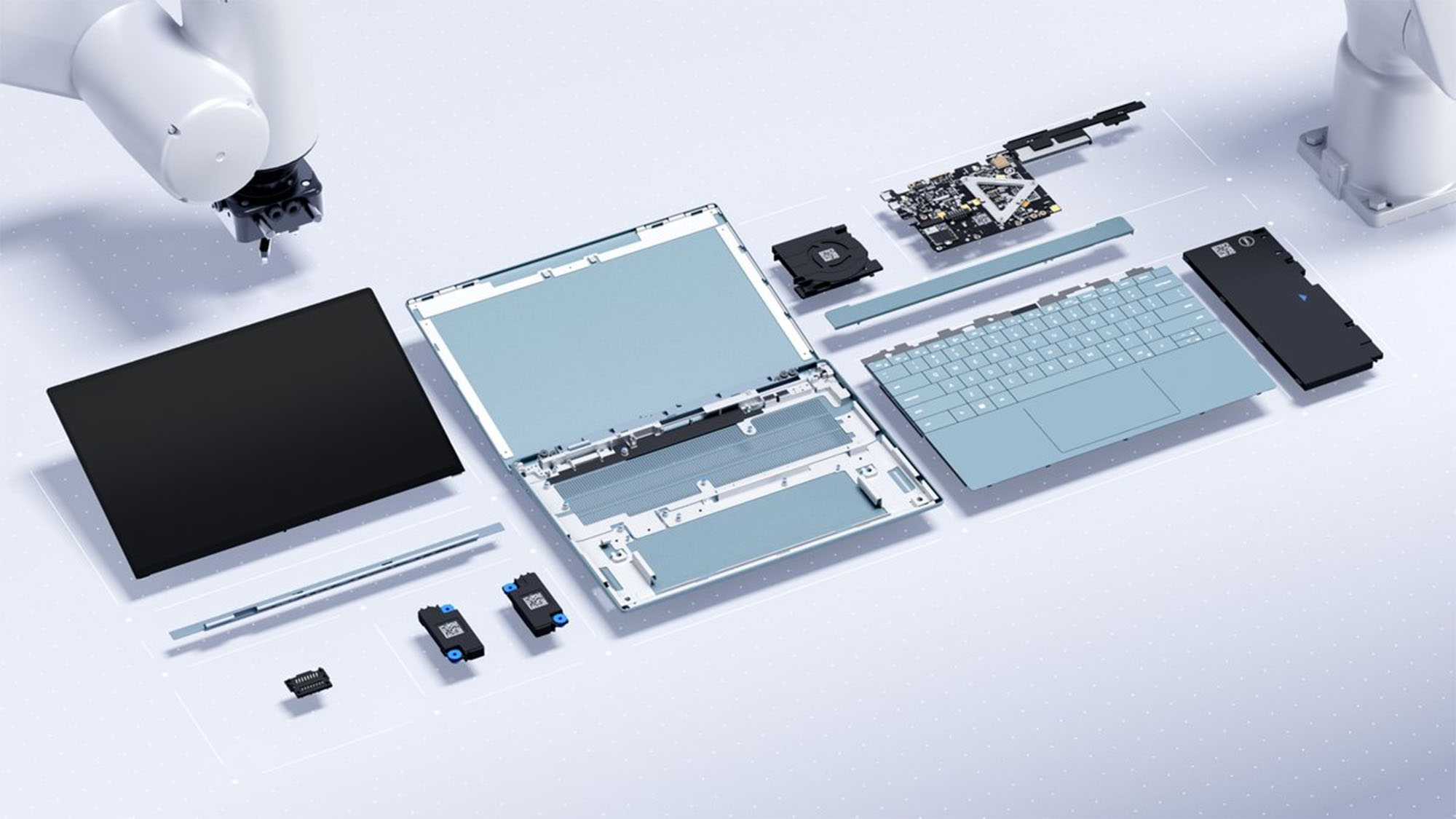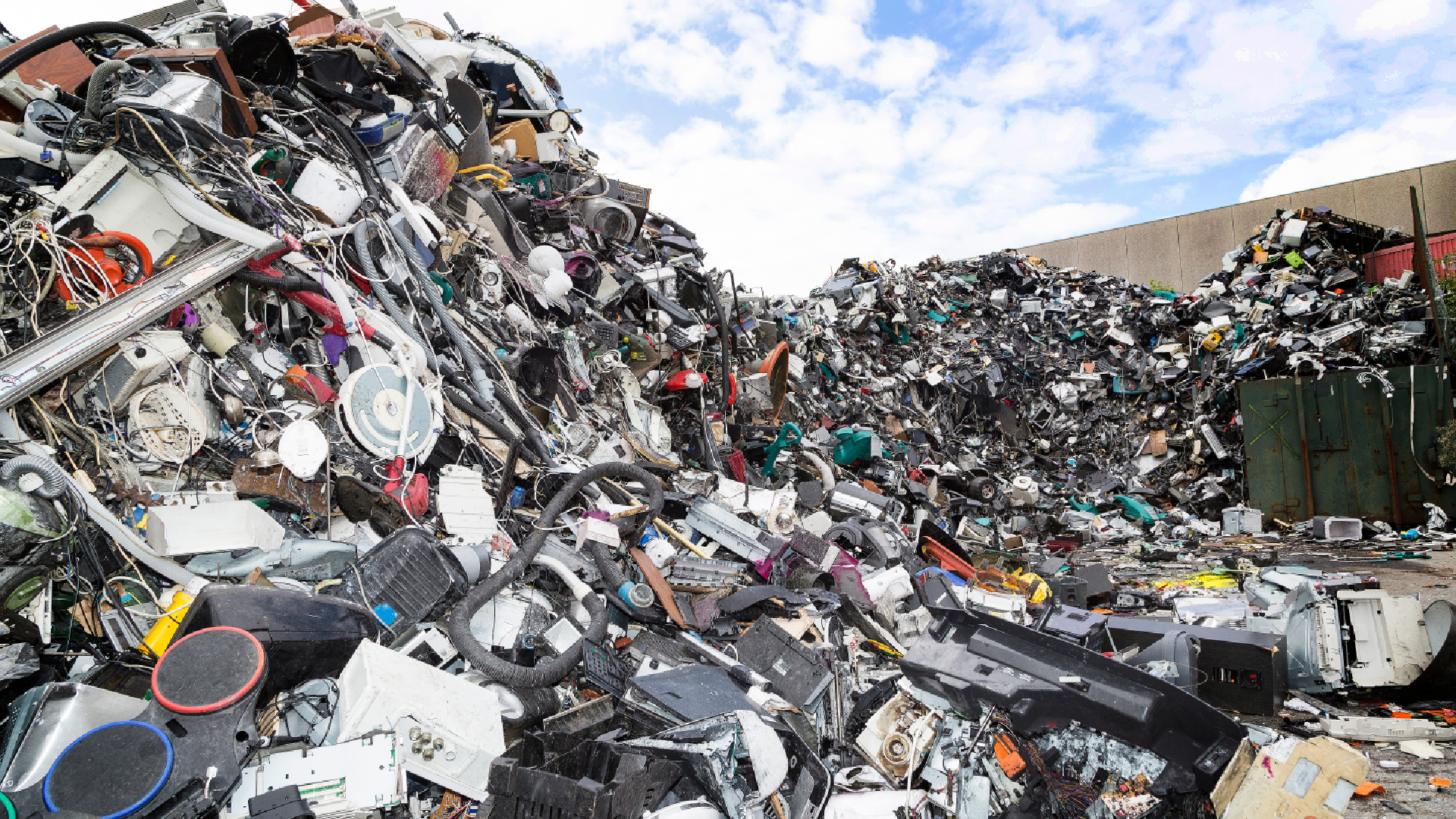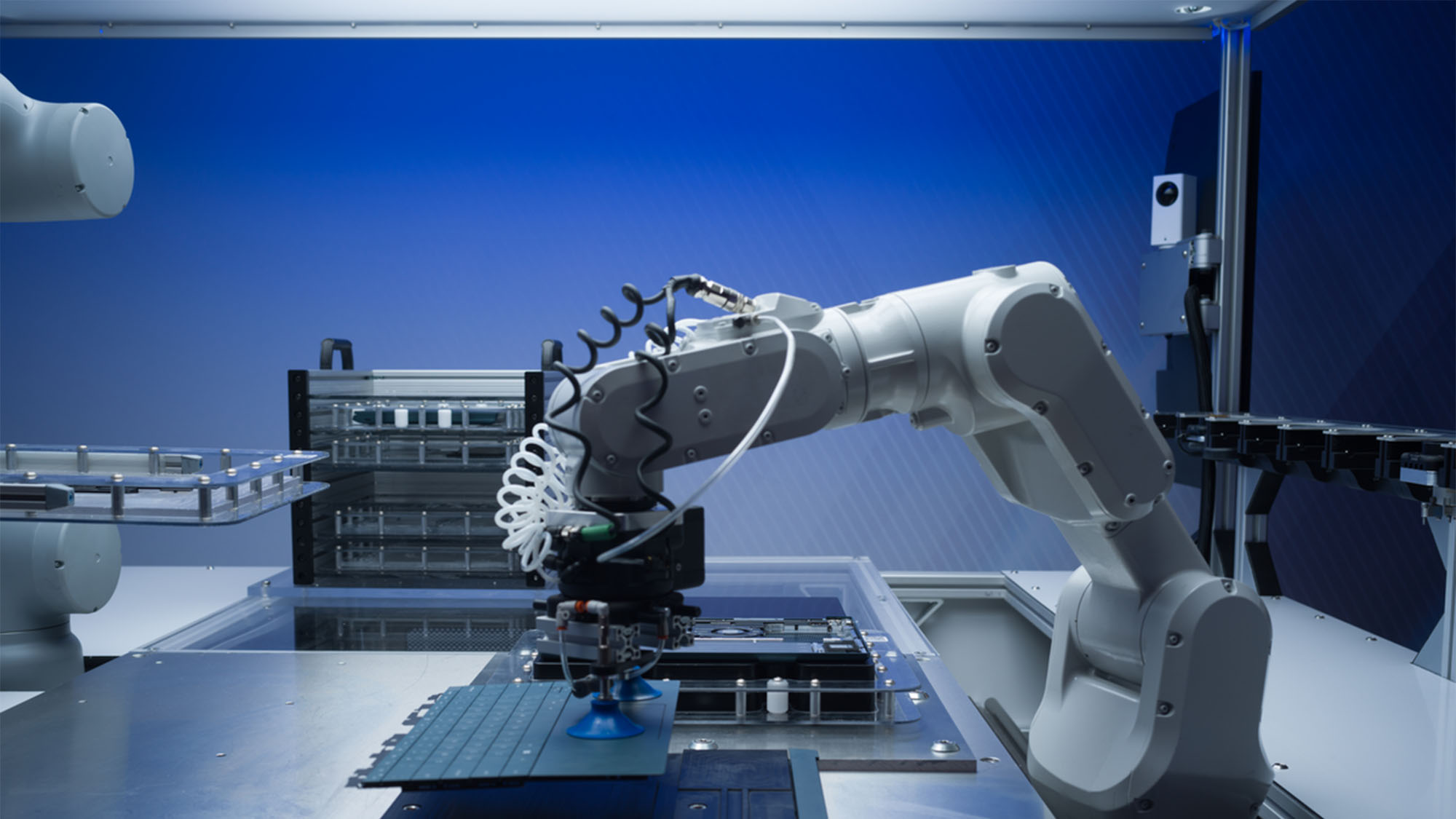Dell's wild sustainable laptop can be taken apart and put back together in two minutes
Dell's Concept Luna wants to bring a DIY solution to e-waste

If it's one thing people know about laptops it's that they are very hard to open up. I don't mean the lid, mind you (though that is sometimes true, as well), but the laptop itself, the chassis, the guts of the machine that more and more people every year are relying on to do their work and otherwise live their digital life.
In many cases, the only thing you can upgrade on a laptop is the storage and the RAM, but even that can be difficult for most people. In some cases, as with the MacBook Air, opening the laptop is simply beyond the abilities or tools of just about anyone that Apple hasn't explicitly authorized to do so.
This kind of pick-up-and-go approach works for most people, and a lot of people wouldn't trust themselves to do even the limited number of upgrades that are possible, much less replace the screen or even the CPU. But a new experimental project at Dell called Concept Luna has me asking, what if it was possible to swap out parts of a laptop the way we do with a gaming PC? After seeing it in action this week, and even experiencing it for myself, Dell has made me a believer.
The problem of e-waste isn't going away

Concept Luna started when a couple of engineers at Dell approached the problem of e-waste from a more holistic angle than most other manufacturers have done to date. E-waste, if you're not familiar with the problem, is electronic waste that has become an increasingly urgent concern as more and more of everyone's lives become digitized.
If you've ever bought a new phone and thrown out an old one, that is e-waste, but it's not just phones, it's everything from phones and tablets to monitors, TVs, and laptops.
One of the main drivers of this is obsolescence, planned or otherwise. When a phone is too old to run on a newer 5G cellular network, customers will want to buy a new phone that can take advantage of this latest technology. When a new Dell laptop comes out with a new mini-LED display or DDR5 RAM, you're all the more tempted to upgrade your aging device to these new technologies.
The problem of course is that you don't just buy a new screen or a new type of RAM, you often have to buy a whole new laptop when your current laptop might otherwise be fine except for one component or another.
Get daily insight, inspiration and deals in your inbox
Sign up for breaking news, reviews, opinion, top tech deals, and more.
Most electronics that break aren't completely worthless just as any car with engine problems isn't a total loss. Even an engine problem that prevents the car from starting can often be chalked up to a single part in an otherwise perfectly functional engine. Look no further than a desktop PC and you'll see that you don't need to buy a whole new computer when all you want to do is upgrade a graphics card.
This kind of DIY or at least repair-friendly paradigm is common throughout the world for all sorts of devices. Laptops, however, are a different story. We continue to buy new laptops every few years as landfills the world over fill up with perfectly good electronics that had the misfortune of being paired with an outdated processor.
What is Concept Luna?
Concept Luna is an experimental concept at Dell that looks to completely reimagine the laptop as something more like a desktop PC while laying the foundation for an ecosystem of electronic components that encourages repeated use and recycling.
To do this, Dell's Experience Innovation Group has produced a prototype laptop design that can be disassembled almost entirely without complicated tools and can be reassembled with new, compatible parts in just a few minutes. It's a remarkable design innovation that I was able to experience personally in December 2022 at a Dell demo event in New York City.
Using a simple tool to poke pinholes no more than three or four times, Dell's product engineers showed the complete disassembly of a working Windows laptop in less than 90 seconds, and they were working slowly enough to explain each step. The result is the kind of exploded view of a laptop you'd normally see in design documents that have labels indicating each part.
There is also a robot that can do this exact same process to speed up laptop-part quality verification and recycling, which is just as important as being able to assemble and disassemble a laptop yourself.
Completely disassembling and reassembling a laptop in less than five minutes
During Dell's demonstration, I wanted to see if I could take the individual parts of the device and reassemble them into a working laptop. I was able to do it in just about three minutes on my first attempt (with some slight direction from the product team). However, it could easily be done in under a minute if you've done it at least a couple of times before.
All in all, the process was pretty simple, with the only real complication being lining up the parts correctly, but it required no tools on my part and I only needed to plug in a single cable for the display. Nearly everything else was a drop-and-slide interface with few if any delicate parts exposed for you to bend, break, or otherwise ruin.
Hell, even if I did ruin a part, it wouldn't have been the entire laptop, which is a huge part of what makes Concept Luna so exciting. By making the laptop a modular assembly of components, you can easily upgrade to better quality speakers, swap out a cracked screen, replace the keyboard with one that features different mechanical switches, and more.
Ultimately, even the CPU and GPU, along with their cooling solution, could be replaceable, making a laptop as versatile as a desktop PC and helping keep a huge part of the estimated 57 million tons of e-waste that ends up in a landfill every year out of the ground and recycled back into the production process.
Why Concept Luna matters

E-waste isn't just unsightly, it's dangerous in ways that a lot of other waste isn't.
Rare earth minerals in electronics like lithium and cobalt can leech out over time and contaminate groundwater. And as the name suggests, these minerals are also hard to come by, leading to conflicts in mineral-rich regions of the global south where demand for these minerals often means richer nations will look the other way when it comes to human rights abuses in order to maintain the supply of minerals needed for the modern electronics-driven economy.
It is essential that we take the recycling of electronics seriously, and with so many of the world's laptops heading straight into a landfill after four or five years, any way to short-circuit that process is a good development. The fact that Dell, one of the largest computer makers on Earth, could take the lead on that is even more encouraging.
Of course, Dell can't just play around with Concept Luna for a bit and then abandon it so it can continue to sell new laptops to people who are already on their fourth or fifth device in the last 20+ years.
What's more, Dell can't be the only one doing this. Lenovo, HP, and yes, even Apple, need to stop treating laptops like they're single-use plastic straws and accept the fact that people don't just have the right to open up and tinker with the stuff that they have purchased, but that it is imperative that something like this not be for hobbyists alone.
And even if this isn't something that everyone gets used to doing (there will be plenty of people that would just as readily buy a whole new laptop than fix a broken keycap on the keyboard), Apple and Best Buy in the US have partnered together to create a kind of leasing system where you pay off a new MacBook device every month with the option to turn in that MacBook in a couple of years to get a newer model with newer hardware.
As Dell showed me during its demo, a robot can easily disassemble a laptop like the one I put back together in very short order, creating entire bins full of working parts that can be reassembled into new devices or used to repair old ones. This is more or less how "refurbishing" works, but what Concept Luna points to is a future where an enhanced form of refurbished becomes the norm and where we can refurbish our devices ourselves with very little hassle.
Given the stakes, if we don't get the problem of e-waste under control, it's an idea whose time has come, and the sooner it rolls out of the concept stage and into production devices the better.

John (He/Him) is the Components Editor here at TechRadar and he is also a programmer, gamer, activist, and Brooklyn College alum currently living in Brooklyn, NY.
Named by the CTA as a CES 2020 Media Trailblazer for his science and technology reporting, John specializes in all areas of computer science, including industry news, hardware reviews, PC gaming, as well as general science writing and the social impact of the tech industry.
You can find him online on Bluesky @johnloeffler.bsky.social